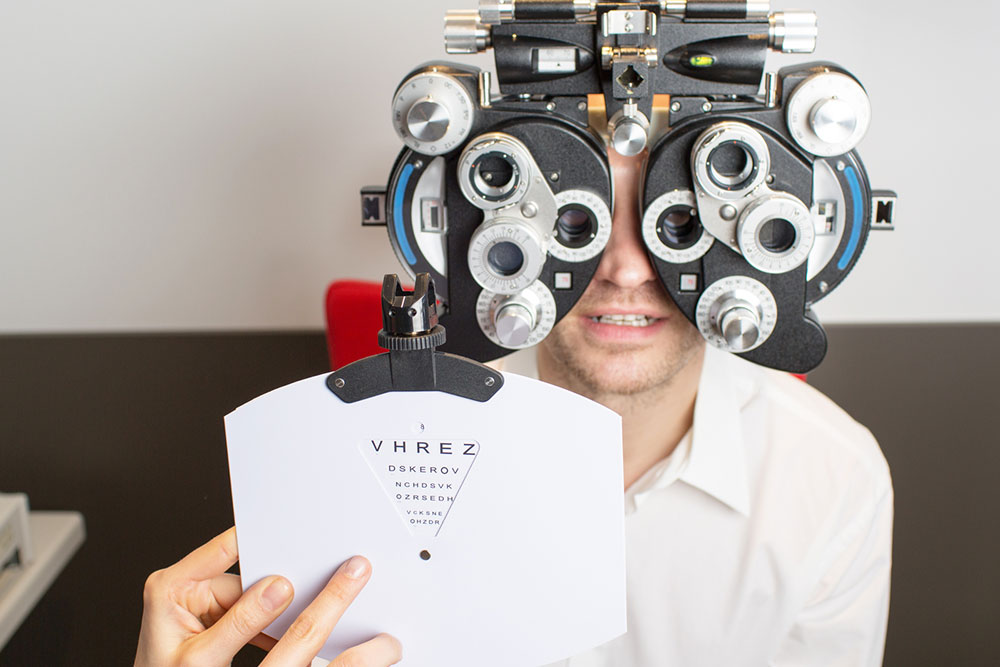12 Useful Ways to Maintain Eye Health

Our eyes help us see what’s around us so that we can react accordingly. Since they perform such a crucial function, we must maintain them by following healthy practices. Sadly, many ignore eye care and increase their risk of ocular conditions. These conditions are usually treatable with timely intervention, but prevention is always better than cure. Below are a few simple yet practical ways to maintain eye health in the long run.
1. Eat foods rich in omega-3 fatty acids
Studies have shown that omega-3 fatty acids can help improve the functioning of the meibomian gland. This oil gland protects against age-related macular degeneration and dry eye disease. Fatty fish, such as salmon, tuna, and mackerel, are excellent sources of omega-3 fatty acids and should be a part of one’s meals to protect the eyes. Nuts like walnuts and seeds like flax and chia seeds are also rich in this essential nutrient.
2. Maintain an active lifestyle
Moderate-intensity exercises considerably reduce eye pressure, lowering one’s risk of glaucoma, cataracts, age-related macular degeneration, and other eye disorders. Hence, individuals should avoid a sedentary lifestyle and incorporate walking, jogging, skipping, cycling, swimming, or other exercises into daily workouts.
3. Wear shades while stepping out during the day
In the long run, persistent and direct exposure to sunlight can trigger several eye diseases, including macular degeneration, corneal damage, and cataracts. While stepping out in the sun is often inevitable, one should wear protective shades to prevent eye damage caused by UV rays.
4. Include foods with beta-carotene
The body transforms beta-carotene into vitamin A, an essential nutrient that supports eye health and helps prevent ocular diseases. Carrots, leafy greens, tomatoes, sweet potatoes, broccoli, papaya, and red bell peppers are a few foods high in beta-carotene.
5. Avoid overuse of electronic devices
It’s hard to imagine a life without gadgets today. However, one must remember that mobile phones, laptops, and other devices emit blue light. This light penetrates up to the inner lining at the back of the eye, increasing the risk of retinal and eye lens damage. Consequently, individuals can also develop blurry vision and dry eyes. Furthermore, continuously staring at a screen can lead to digital eye strain, aggravating fatigue, and headaches. Considering this, many phone manufacturers have introduced settings to help users monitor their screen time closely and avoid overusing apps. One should check out these features and make the most of them.
6. Avoid sleeping with contact lenses
Sleeping with regular or colored contact lenses can increase susceptibility to corneal infections. These infections can cause discomfort and trigger permanent eye damage. Hence, one should avoid wearing eye lenses for long hours and remember to remove them before sleeping.
7. Practice eye exercises
Eye exercises help keep the eyes active and prevent strain and discomfort. A simple exercise involves staring at a distant object followed by a nearer object for 15 seconds each.
8. Get sufficient sleep
Sleep deprivation can cause redness, swelling, dark circles, eye spasms, twitching, and other symptoms, gradually increasing the risk of eye conditions. Individuals must aim for seven to eight hours of sound sleep every night to prevent such issues. Today, several smartwatches offer sleep-tracking features, helping users monitor not only sleep duration but also quality in the different sleep stages.
9. Avoid exposure to harsh lights
Constant direct exposure to excessively bright light can cause vision problems and retinal damage over time. One should install radiant lights that are not too bright and avoid staring directly at harsh lights to prevent eye damage.
10. Stay hydrated
Adequate eye lubrication is essential to remove bacteria and prevent dry eyes. Drinking sufficient water helps keep the eyes hydrated. Experts recommend that women and men drink 2.7 and 3.7 liters of water daily, respectively, to stay adequately hydrated and ensure eye lubrication.
11. Control blood sugar levels
Diabetes is associated with an increased risk of glaucoma and retinopathy. Therefore, those with diabetes should control their blood sugar levels. One way to do this is to limit or avoid refined sugar strictly. Refined sugar is present in many confectionaries, processed foods, and instant cereals.
12. Avoid processed foods
Processed foods like hot dogs and bacon have incredibly high sodium levels. Excessive sodium can elevate blood pressure and trigger eye conditions like hypertensive retinopathy and blood vessel damage. It helps to replace processed foods with foods containing healthy fats and carbs.
Caring for the eyes should be an integral part of one’s healthcare objectives, as eye diseases can be challenging to manage, particularly after a certain age. A healthy meal plan, proper sleep, and protection against UV rays and bright lights can help reduce the risk of eye problems.






